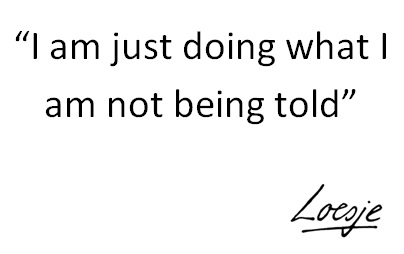PMOS: CHANGE MINDSET, ADOPT THE FIREFIGHTER APPROACH
May 4, 2015

Recently, I was reading an article, [published in one of the Netherlands’ popular newspapers Kalshoven, 2014] about switching from the ‘aftercare’ to the ‘precare’ mode of delivering services/taking actions in our economy, government and in our life.
It referred to the trend that firefighters started. Instead of focusing only on fighting actual fires, they also focus on how to prevent fires. The reason is that it costs less money to make people aware of fire hazards and take precautionary measures, than it costs to fight the actual fire and repair all the damages after the incident. Over the last 10 years, Dutch firefighters have been able to reduce the number of fires by one third by adopting such an approach.
The same is happening in the Netherlands’ healthcare sector. More and more insurance companies are focusing on preventing health issues than just curing it. Again because, preventive actions, eventually, cost less money.more–>
The Bottom line is: Investing in fire-safe environments prevents high costs in the future.
It was ironical that in the same week (when I read the article), my manager called me a firefighter, because I spent the whole week dousing little fires. Then I wondered, can a PMO (Project, Program of Portfolio Office) perhaps prevent project-fires as well? Is that how a PMO can add/bring the best value to any business?
Until now, most PMOs functioned in a reactive fashion… i.e. assisting the P-manager in what he or she needs. This automatically leads to questions, discussions and search for the added value that a PMO can bring.
I think we would see the difference, if this aspect – changing from being reactive to proactive – is factored in when restating the activities of a PMO. Hopefully, this article will inspire both officers and P-managers to redefine the position and tasks of a PMO and actually state a strong business case for them.
From a firefighter to a PMO
As stated in our previous blog post, we see PMOs playing a vital role in reaching your strategic goals by aligning and implementing tools, people and processes. This requires PMOs to have a proactive mindset.
The office needs to actively provide information and advices to people. It needs to challenge each manager and part of the (change) organization with how and what they are doing and can do.
Proactive efforts from PMOs can be expected in services like benefits management, reporting and monitoring, consultancy and knowledge management.
But, perhaps, the largest transformation that needs to happen is within the mindset of the office itself. So, step out!
PMO Business Case
Still, stating a business case for a PMO remains difficult. I strongly believe that this has to do with the fact that a solid and well implemented PMO puts a lot of effort in prevention.
There is little to no direct causal link between prevention and the fires not happening…. It’s quite hard to measure something, which isn’t there. Therefore, measuring the effectiveness of a PMO is hard, though not impossible. What is vital is that you state what you want to achieve with the PMO and state solid Key Performance Indicators. Measure your performance before and during working with a PMO.
All these, together, will make sure that you are taking the right actions and doing them right!
That’s how we can facilitate in implementing your strategic goals.
Reference
Kalshoven, F. (2014, 12 27). Het spel en de knikkers. Van een nazorg naar een voorzorg economie. . de Volkskrant.
Co-authors: Sandra Rijswijk and Rick Bouter

 English | EN
English | EN 
